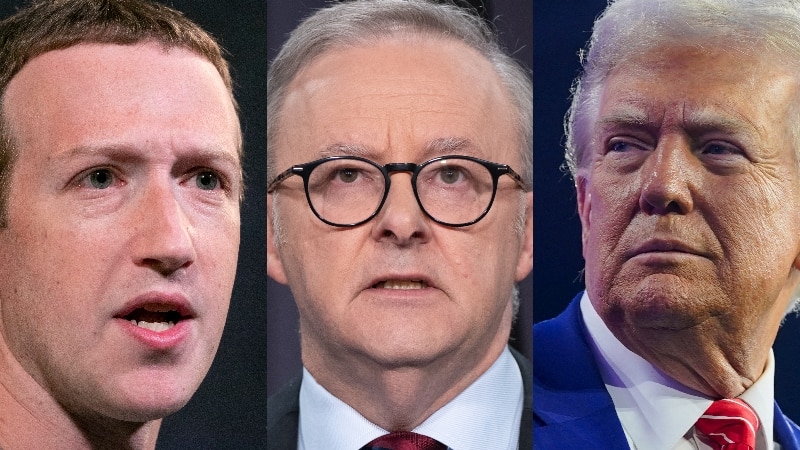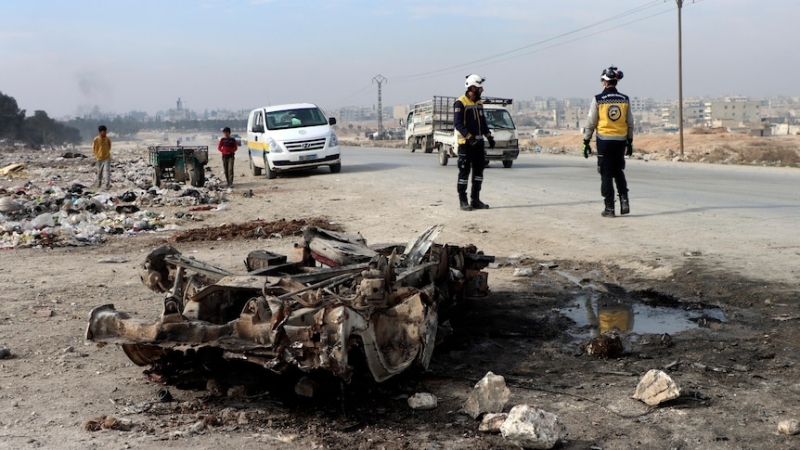Michelle Rowland will today release a report from top public servant Delia Rickard recommending a new duty of care for tech platforms. (Reuters: Dado Ruvic/Illustration)
In short:
A government review led by top public servant Delia Rickard has recommended an enforceable duty of care on tech platforms to take steps to avoid harmful online content.
The government has committed to a duty of care but does not have a position on the hefty penalties Ms Rickard proposes, and does not intend to legislate before the federal election.
What's next?
Any large penalties on the tech sector would risk upsetting the Trump administration as the government scrambles to avoid tariffs.
Plans to toughen online safety requirements for big tech platforms are on ice after the federal government's hand-picked expert recommended threatening Meta, Apple and Google with billions of dollars in fines.
Communications Minister Michelle Rowland has been sitting on the recommendation from top public servant Delia Rickard since November and will publish it today without stating the government's position.
The proposed fine would apply to tech platforms that breach a new "duty of care" enforced by the eSafety commissioner that would require them to be proactive about preventing child exploitation, online hate and content promoting substance abuse or eating disorders.
How would a 'Digital Duty of Care' actually work?
Photo shows Brightly rainbow coloured fireworks are seen over the Opera House in Sydney, Australia

The government has already publicly agreed to enact a duty of care and brought forward the timing for Ms Rickard's review to expedite the process, with some indications it will legislate in this term of parliament.
But the government now has no timeline to legislate it before the federal election and no timeline for revealing whether it plans to adopt Ms Rickard's fine regime, which would fine non-compliant platforms either 5 per cent of their global annual turnover or $50 million, whichever was greater.
The UK and the EU already take a similar approach, and the government itself proposed similar in its shelved misinformation and disinformation bill.
But committing to the fines now would risk upsetting the Trump administration and its allies in the tech sector at a precarious time when the government is scrambling to avoid mammoth tariffs.
The fines would be the last resort and could only be imposed after lengthy court processes, with $10 million civil penalties available for lesser breaches and the hope that platforms would willingly meet their obligations, as at least already do.
Major expansion of eSafety remit
Ms Rickard's proposal would also expand the scope of online safety regulation, with a new code of conduct to cover "dehumanisation" of groups on the basis of "protected characteristics" such as sexual orientation, age or religion.
It would also cover child sexual exploitation and grooming, threats to "national security and social cohesion", and "promotion of harmful practices" such as suicide, disordered eating or dangerous dares.
The most stringent requirements, including an annual monitoring report, would apply to "high-risk" platforms as designated by the eSafety commissioner, or automatic inclusion for any platform or online service provider used by at least 10 per cent of Australians.
Albanese defends social media ban
Photo shows Zuckerberg Albanese Trump composite

For the online hate component, Ms Rickard has recommended broad exemptions for any "ideas, concepts or institutions", art, science, journalism and reasonable political communication, an effort to avoid the free speech concerns raised by the misinformation and disinformation bill.
Under the proposal, the eSafety commissioner would have broader powers to request content be taken down when it sees a threat to safety.
For adult cyber abuse and child cyber bullying, it could order take-downs within one day of receiving a complaint, instead of two as currently.
But the spectre of a platform failing to comply with such a notice, as Elon Musk's X did over footage of the Wakeley stabbing last year, raises questions about the enforceability of any code without strict penalties, especially if large tech platforms continue their recent shift away from content moderation.
Last month, Meta's Mark Zuckerberg emulated Mr Musk's approach when he declared a "new era" for his platforms, which include Facebook, Instagram and WhatsApp.
The chief executive criticised governments around the world for "institutionalising censorship", saying it was "clearly political" to police content on a pretext of "potential harms from online content", and he directly singled out European legislators.





